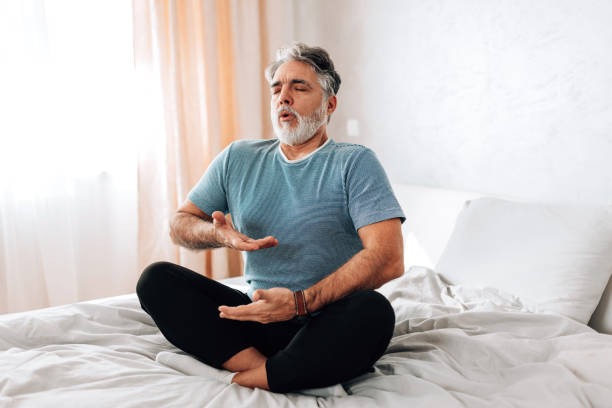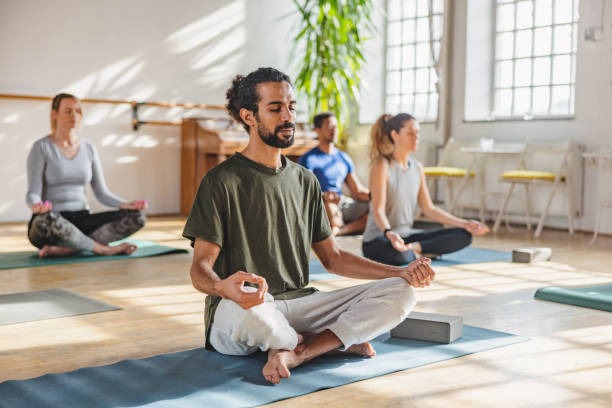Finding Quiet in the Chaos: 7 Simple Ways to Protect Your Peace in a Noisy World
In this chaotic world, feeling overwhelmed has become commonplace. Learn how to find calm in 7 simple, science-backed tips to quiet your mind, protect your peace, and reconnect with yourself.
HOMEMINDBODY
Janelle Salo RN
5/24/20258 min read


3 Key Points
Protecting your peace starts with small daily habits, like deep breathing, setting boundaries, and limiting screen time, that help calm your mind and body.
Simple practices like nature walks, mindful mornings, and creative self-care activities can reduce stress and boost your mood.
3. You don’t need to do everything at once, just choose one peaceful step today and build from there.


Introduction
How to Find Peace in a Chaotic World
Let’s be real, life can feel overwhelming. Between work, school, homelife, social media, and trying to keep up with everything happening in the world, it’s easy to feel like your brain is running on overdrive. The constant noise, pressure to perform, and nonstop scrolling can leave you feeling anxious, burned out, and totally drained.
You’re not alone. A lot of people are dealing with way more stress than they let on. If you’ve ever wished you could just pause everything and take a breath, keep reading.
In this article, we’ll talk about how to find peace in a chaotic world, and no, you don’t need to run off to an island or delete every app on your phone, unless you want to. You’ll learn seven simple, science-backed, and soul-nourishing ways to protect your peace, quiet the mind, and feel more inner calm, even when the world around you feels loud and messy.
1. Start Your Day with a Mindful Morning Routine
Mornings set the tone for your whole day, so if you're waking up and immediately grabbing your phone, checking texts, or scrolling before you're even out of bed, you're off to a bad start. Beginning your day like that can actually stress you out more without you even realizing it.
If you’re wondering how to calmly start the day, the answer might be simpler than you think. Try building a short morning mindfulness routine. You don’t need an hour-long ritual with incense and yoga, unless you’re into that. Even just 5 to 10 minutes of calm, intentional time can make a big difference.
Here are a few easy ways to get started:
Take a few deep breaths before you even get out of bed. Try breathing in for 4 seconds, holding for 4, and breathing out for 4.
Jot down a quick journal entry—a thought, something you're grateful for, or how you're feeling that day.
Sit in silence for a minute or two, no phone, no music, just you and your thoughts. Sounds weird at first, but it's actually super grounding.
Doing this can help reduce the stress hormone cortisol and boost your focus for the rest of the day. (1)
Pro tip: Create a no-phone zone for the first 30 minutes after you wake up. Try leaving your phone in another room overnight or using an actual alarm clock. You might be surprised how much calmer your mornings feel.
2. Limit News and Social Media Consumption
Put the phone down!
We're all glued to our phones. From Instagram to Facebook to whatever viral TikTok trend is taking over today, it’s easy to spend hours scrolling without even realizing it. But all that nonstop noise, drama, and constant updates? It’s doing more than just killing time, it’s draining your energy and messing with your peace.
If you’ve ever felt anxious, down, or just weirdly exhausted after being online too long, you're not imagining it. Digital overload is real. And when your brain is constantly taking in information, especially stuff that makes you feel angry, it can seriously affect your mood and focus.
So what can you do?
You don’t have to quit social media forever, but even a mini social media detox can help. Here are a few easy ways to reduce screen time and reclaim your calm:
Set time limits on your most-used apps (most phones let you do this in settings).
Turn off notifications so your brain isn't constantly on alert.
Try a “No Scroll Sunday” or one day a week where you stay offline.
Move your social apps off your home screen or delete them for a weekend.
Studies have shown that even short breaks from social media can lead to better sleep, lower stress, and improved mood. (2) So if you're serious about protecting your peace, start with your screen.
3. Practice Deep Breathing or Meditation
When life feels out of control, sometimes the best thing you can do is pause... and just breathe. Your breath is one of the most powerful tools you have when it comes to calming your nervous system and you carry it with you 24/7.
Whether you're dealing with work stress, family drama, or just one of those days, practicing deep breathing for anxiety can help your brain and body hit the reset button.
Here are two super-easy techniques to try:
Box Breathing: Inhale for 4 seconds, hold for 4, exhale for 4, hold again for 4. Repeat a few times.
4-7-8 Breathing: Inhale for 4, hold for 7, exhale for 8. Great for relaxing before bed or calming down after a stressful moment.
You don’t have to meditate for 30 minutes to feel the benefits, either. Just 5 minutes of silence and focused breathing can totally shift your mood.
The key? Consistency over perfection. You don’t have to “do it right”, you just have to show up.
If you want some guidance, check out free apps like Insight Timer, Calm, or even quick meditation videos on YouTube. Search “5-minute meditations” and pick one that feels right for you.
Your mind deserves a break. Let it breathe.
4. Connect with Nature Daily
When everything feels like too much, work, family, the news, all of it, sometimes the best thing you can do is step outside. It might sound simple, but there’s real power in using nature therapy to reset your mind and body.
Studies show that just spending time in green spaces can reduce stress, boost your mood, and help you feel more focused. (3) These are just some of the benefits of being in nature, and you don’t have to hike a mountain or live near a forest to get them.
Try these easy grounding techniques:
Take a barefoot walk in the grass or on the beach. Feeling the ground beneath your feet literally helps "ground" your nervous system.(4)
Try forest bathing—a Japanese practice that’s really just walking through trees and noticing things; sights, sounds, smells.(5)
Can’t go outside? Take care of a houseplant, open a window, or sit in the sun for a few minutes. Sunshine has always been my favorite way to finding calm and peace.
Even 10 minutes a day in nature, or near something natural, can make a difference. So next time you’re feeling overwhelmed, step away from the screen and step outside. Let the wind, sun, or even the rain remind you that it’s okay to slow down.
5. Create a Calm Space at Home
Your environment plays a huge role in how you feel, so if your house is chaotic, your brain might feel the same way. The good news? You can learn how to create a peaceful home without spending a bunch of money or doing a full makeover.
Start with decluttering for mental health. You don’t have to go full minimalist, but clearing off surfaces, organizing your desk, or just making your bed can help your space feel less overwhelming.
Want to go a step further? Try these tips to build a calming home environment:
Use soft lighting like a salt lamp or string lights instead of harsh overhead lights.
Add natural elements like a plant, some cool rocks or crystals, or even a bowl of seashells from your last beach trip.
Use calming scents like lavender, eucalyptus, or vanilla essential oils can all help your space feel more relaxing.
And don’t underestimate the power of color. Soft blues and greens are known to calm the mind. Cozy textures like fluffy blankets, pillows, or a soft rug can also help you feel more grounded.
Your space doesn’t have to be perfect. Just make it yours, a place that feels safe, quiet, and calm whenever the outside world gets loud.
6. Learn to Say No Without Guilt
Let’s be honest, it’s really hard to say no. Whether it’s helping a friend, joining another group project, or going to an event you’re not feeling, it’s easy to say “yes” just to keep the peace. But here’s the truth: overcommitting drains your energy, big time.
If you’re constantly saying yes to everyone else, you might end up with no time or energy left for yourself. That’s where setting boundaries for peace comes in. And no, setting boundaries doesn’t make you rude or selfish. It makes you healthy.
So how do you do it? Start by checking in with yourself. Before you agree to something, ask:
“Do I actually want to do this?”
“Do I have the time and energy for it right now?”
If the answer is no, that’s okay. Here are some easy ways to say no that won’t feel harsh:
“Thanks for thinking of me, but I need to pass this time.”
“I’ve got a lot on my plate right now, so I can’t take anything else on.”
“I’m working on protecting my energy, and I need some time for myself.”
It might feel uncomfortable at first, but the more you practice, the more natural it gets. Remember: learning how to say no is a form of self-respect. Every “no” to something that drains you is a “yes” to your peace. Remember, you are the most important person in your life. If you cannot take care of yourself first, above all others, how can you take care of anyone else?








7. Make Time for Soul-Nourishing Activities
Sometimes we get so caught up in being busy that we forget to actually enjoy life. But here’s your reminder: rest is not a reward, it’s a requirement. If you want to feel more balanced, grounded, you’ve got to make space for the things that bring you peace.
Think of it as soul-care, not just self-care. Try different self-care ideas and see what clicks. It could be:
Listening to your favorite music or playing an instrument
Drawing, painting, or crafting something just for fun
Doing yoga or gentle movement (click here for my favorite YouTube yoga!)
Reading a book you want to read, not because you’re tasked or assigned to read it
Digging in the dirt or taking care of plants, even if it’s just one on your windowsill
These are all activities that bring peace, tiny moments of calm that remind you who you are beyond the stress and noise.
Here’s a tip: actually schedule peaceful moments like appointments. Put “relax and read” or “art break” in your calendar like you would a work task or home chore. Treat it like something that matters, because it does.
The little simple joys you make time for today can help you feel stronger, happier, and more connected to yourself tomorrow.








You Deserve Peace, Even in a Noisy World
Life isn’t always quiet. It’s messy, loud, and overwhelming, especially right now. But here’s the good news: you have more power than you think to protect your peace. With just a few small choices, like deep breathing, going outside, or saying “no”, you can create little pockets of calm that help you feel more like you again.
Remember, this isn’t about being perfect. It’s about being intentional. Start small. Pick one peaceful step, whether it’s turning off notifications, going for a barefoot walk, or making your room a little more cozy. Choosing calm in a chaotic world is a powerful act of self-love.
© 2025 Salo Content Writing LLC, all rights reserved
Join the Movement for a Healthier Planet! 🌿
Subscribe now and get your FREE Sustainable Living Checklist! Plus, enjoy weekly articles and delicious plant-based recipes straight to your inbox. Let’s make sustainable living simple and inspiring, one email at a time! 💚✨
